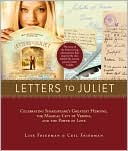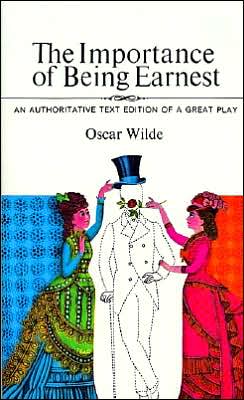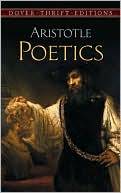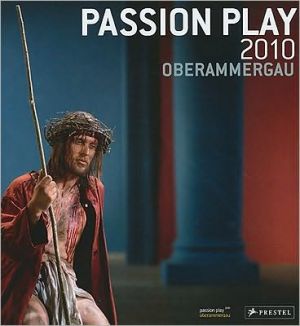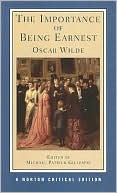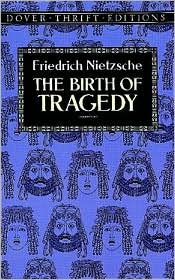The Book of William: How Shakespeare's First Folio Conquered the World
Shakespeare's First Folio, the first complete collection of his plays, was almost never printed. Its eventual publication went practically unnoticed, and many of the original 750 copies were gone before the turn of the eighteenth century. But a hundred years later the plays were rediscovered, beginning the long, surprising process that secured Shakespeare's legacy. Paul Collins follows this book's journey through the centuries, as it lies undiscovered for decades, burns, sinks, is bought and...
Search in google:
The first popular narrative history of Shakespeare’s First Folio, the world’s most obsessively pursued book. One book above all others has transfixed connoisseurs for four centuries—a book sold for shillings in the streets of London, whisked to Manhattan for millions, and stored deep within the vaults of Tokyo. The book: William Shakespeare’s First Folio of 1623. Paul Collins, lover of odd books and author of the national bestseller Sixpence House, takes up the strange quest for this white whale of precious books. Broken down into five acts, each tied to a different location and century, The Book of William’s travelogue follows the trail of the Folio’s curious rise: a dizzying S otheby’s auction on a pristine copy preserved since the seventeenth century, the Fleet Street machinations of the eighteenth century, the nineteenth century quests for lost Folios, obsessive acquisitions by twentieth century oilmen, and the high-tech hoards of twenty-first century Japan. Finally, Collins speculates on Shakespeare’s cross-cultural future as Asian buyers enter their Folios into the electronic ether, and recounts the book’s remarkable journey as it is found in attics, gets lost in oceans and fires, is bought and sold, and ultimately becomes immortal.The Barnes & Noble ReviewIn recent years several authors have taken on the daunting challenge of biographizing Shakespeare. From the scrappy Will in the World by Stephen Greenblatt to the highbrow ruminations of Harold Bloom's Shakespeare and the Invention of the Human, books abound that interweave the meagre details of Shakespeare's life with the rich history of his time, seeking ways to account for the eruption of his singular genius. In fact, the motivations of readers and publishers in the fraught era following the Bard's lifetime may have more to tell us about the transmission of that genius and the construction of its legacy. In The Book of William, Paul Collins unclasps the secret book of the First Folio -- the first posthumously-published edition of the Bard's plays and the chief source for his work -- and reads matter deep and dangerous. For this legacy of world literature would have been lost in nature's infinite book of secrecy were it not for the greed of early publishers, the burgeoning enthusiasm of critics and the public, and the tender ministrations of collectors. Collins, a professor and book sleuth in the McSweeney's orbit, follows the fate of the few surviving First Folios from 17th-century printshops to Sotheby's auction room, watching as copies slip through the fingers of robber barons and rare books librarians alike. Scholars have long known the riches to be sought in the material history of books; in the story of the early editions of Shakespeare's works, Collins finds dukedom large enough for the general reader as well. --Matthew Battles
Act IScene i New Bond Street, London 3Scene ii Barbican and Aldersgate, London 9Scene iii St. Paul's Churchyard, London 19Scene iv New Bond Street, London 33Act IIScene i Hampstead Heath, London 59Scene ii Catherine Street, London 72Scene iii 17 Gough Square, London 89Scene iv Staple Inn, High Holborn, London 102Act IIIScene i Charing Cross, London 115Scene ii High Halden, Kent 122Scene iii Kensal Green Cemetery, London 132Act IVScene i East Capitol Street, Washington, D.C. 147Scene ii Folger Shakespeare Library, Washington, D.C. 157Scene iii Level C, Folger Shakespeare Library 169Act VScene i The Globe Theatre, Shin-Okubo, Shinjuku Ward 181Scene ii Shinjuku Ward, Tokyo 187Scene iii Meisei University, Hino, Tokyo 200Scene iv Shinjuku Metro Promenade, Tokyo 215Further Readings 221
\ Megan BuskeyCollins writes in this lively and entertaining history of one of the most important books in English literature. Part antiquarian-book primer, part chronicle of literary curiosities, The Book of William is divided into five acts, each evoking a significant place and time in the First Folio's colorful history.\ —The New York Times\ \ \ \ \ Publishers WeeklyUndoubtedly, the Bard himself would be amused to learn all about the fate of the book compiled after his death by fellow actors and colleagues John Heminge and Henry Condell. It was, a collector said recently, "the most important secular work of all time." Collins (Sixpence House), an English professor and NPR regular, is passionate, knowledgeable and sassy in bringing this story to glorious life. Collins divides his work into five acts, leading his reader on a whirlwind trip through the Four Folios eventually printed, into feuds between Alexander Pope and Lewis Theobald and to the opportunistic reach of a financially desperate Dr. Johnson. Over the next 200 years, there are the stories of Henry Clay Folger as well as an ingenious collating machine and related technologies for today's textual scholars. Collins's remarkable voyage through time and across the globe leads to Japan, where the most obsessive collectors of "Sheikusupia" reside. This is for anyone with an interest in how Shakespeare has come down to us, the nature of the book business, the art of editing and the evolution of copyright law. A 20-page "Further Readings" section is by itself a sheer delight. (July)\ Copyright © Reed Business Information, a division of Reed Elsevier Inc. All rights reserved.\ \ \ Library JournalCollins (Banvard's Folly; Not Even Wrong) has done it again. This history—spanning the globe and 400 years in the life and fortunes of one of the most famous books in the English language—is not the dry province of historians, bibliophiles, and antiquarians. Collins relates the series of near-disasters of the folios' inception (lack of intact manuscripts left by the Bard; Heminge and Condell's blind printer) and continued existence (folios stolen, burned, lost at sea, left to molder in ruined estates, ripped apart and used to wrap fish), which gives readers a renewed appreciation for the rarity and value of the folio. VERDICT There are other authoritative works on Shakespeare's folios, including W.W. Greg's The Shakespeare First Folio and Edwin Eliott Willoughby's The Printing of the First Folio of Shakespeare, but Collins's is a welcome addition to this group. Witty, detailed, and highly entertaining, it will be appreciated by fans of Shakespeare, history, or human folly.—Felicity D. Walsh, Emory Univ., Decatur, GA\ \ —Felicity D. Walsh\ \ \ \ \ Kirkus ReviewsThe intricate, improbable story of how the first collection of Shakespeare's plays (1623) became the holiest-i.e., most expensive-of grails in Biblioland. Collins (English/Portland State Univ.) comes well equipped for his peripatetic task. Having written about bibliomania (Sixpence House: Lost in a Town of Books, 2003) and an iconic historical figure (The Trouble with Tom: The Strange Afterlife and Times of Thomas Paine, 2005), the author also possesses a lively curiosity and, to the enlightenment of readers of this galloping, globetrotting romp, an impressive travel allowance. As the Folio publishers divided the Bard's plays into five acts, so too does Collins arrange his tale. Act One opens in a contemporary London auction room-a Folio sold for £2.5 million-but Collins soon returns to the 1620s to watch the surviving Globe colleagues of the recently deceased Shakespeare arrange with printer William Jaggard to print the 36 plays they have assembled-18 of which, Collins reminds us, didn't exist anywhere else. No Folio would mean no Twelfth Night, Antony and Cleopatra, The Tempest or other gems. Collins then follows these First Folios through the centuries, pausing occasionally to educate us about the manufacture of paper, the difference between a folio and a quarto and the reputation of playwrights in general, Shakespeare in particular. Only obliquely does Collins address the "authorship question," noting slyly that a Japanese scholar was the first to notice that all the flowers mentioned in the plays grow in the vicinity of Stratford-upon-Avon. The author also looks at the editions of the Bard's plays that appeared after 1623-there were subsequent folios and editions by Alexander Popeand Samuel Johnson-and sheds some light on Bard-saving heroes unknown to lay readers-notably Lewis Theobald, who was so alarmed at the errors in Pope's edition that he prepared his own. To see the best copies of the Folios, Collins interviewed experts and traveled from the vault of the Folger Shakespeare Library to a Japanese academic library. Exemplary scholar-adventurer writing. Author events in Portland, Ore. Agent: Michelle Tessler/Tessler Literary Agency\ \ \ \ \ The Barnes & Noble ReviewIn recent years several authors have taken on the daunting challenge of biographizing Shakespeare. From the scrappy Will in the World by Stephen Greenblatt to the highbrow ruminations of Harold Bloom's Shakespeare and the Invention of the Human, books abound that interweave the meagre details of Shakespeare's life with the rich history of his time, seeking ways to account for the eruption of his singular genius. In fact, the motivations of readers and publishers in the fraught era following the Bard's lifetime may have more to tell us about the transmission of that genius and the construction of its legacy. In The Book of William, Paul Collins unclasps the secret book of the First Folio -- the first posthumously-published edition of the Bard's plays and the chief source for his work -- and reads matter deep and dangerous. For this legacy of world literature would have been lost in nature's infinite book of secrecy were it not for the greed of early publishers, the burgeoning enthusiasm of critics and the public, and the tender ministrations of collectors. Collins, a professor and book sleuth in the McSweeney's orbit, follows the fate of the few surviving First Folios from 17th-century printshops to Sotheby's auction room, watching as copies slip through the fingers of robber barons and rare books librarians alike. Scholars have long known the riches to be sought in the material history of books; in the story of the early editions of Shakespeare's works, Collins finds dukedom large enough for the general reader as well. --Matthew Battles\ \


